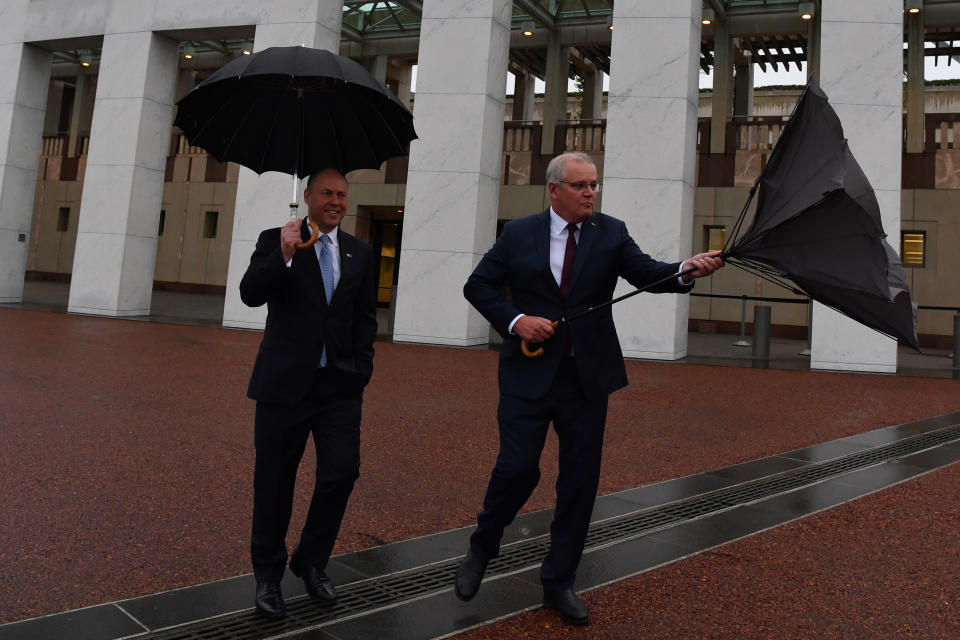The Budget's big assumption that could undo everything

Treasurer Josh Frydenberg plans to take Australia out of recession through a combination of major tax cuts, business boosts and infrastructure development, as revealed in Tuesday’s 2020 Budget.
But there’s one big detail that could throw the entire plan off course: the availability of a coronavirus vaccine.
Also read: Budget 2020: Winners and losers
Also read: 11 million Aussies to get up to $2.7k tax back: When you'll get yours
Announcing a Budget deficit of $213.7 billion, Frydenberg said the economic recovery relies on the assumption that the entire Australian population will have access to a coronavirus vaccine by the end of 2021.
However, Treasury recognised the question marks attached to the assumption in terms of the “timing and efficacy of vaccines”.
The Budget sets aside $1.7 billion to fund vaccine research by the University of Queensland and the University of Oxford, with the Government describing the two research projects as promising.
Is the Budget’s coronavirus vaccine assumption realistic?
Vaccines generally require several years of testing and more to scale, but the World Health Organisation (WHO) is now tracing 170 different candidate vaccines. Most vaccines are currently in the first phase of testing, although there are four candidates in phase three.
In this phase, the vaccine is given to thousands of people to test its effectiveness and side effects.
The well-known University of Oxford/AstraZeneca vaccine is one of these.
In September, Australia inked an agreement with the University of Oxford and the University of Queensland to supply 84.8 million vaccines, to be administered free of charge to Australians.
The Government is now waiting for the phase 3 trial results for Oxford’s AstraZeneca vaccine.
Australia has also signed up to a global vaccine initiative designed to share resources and the vaccine when it becomes available, with all vaccines mandatorily shared by the end of 2021.
This COVAX initiative invests money into nine potential vaccines in the hopes of finding one as soon as possible. However, under the agreement, Australia may only receive half the doses it needs should the vaccine require two treatments to be effective.
While the WHO has said the vaccine should hopefully be ready by the end of 2021, WHO Director-General Tedros Adhanom Ghebreyesus on Wednesday said that could be brought all the way forward to the end of 2020.
"We will need vaccines and there is hope that by the end of this year we may have a vaccine. There is hope," Tedros said in closing remarks to the WHO's Executive Board meeting.
“The most important tool is political commitment from our leaders especially in the equitable distribution of the vaccines," Tedros said.
Billionaire philanthropist and pandemic preparedness advocate and expert Bill Gates said his best case scenario is to have developed countries operating “close to normal” by the end of 2021 should a vaccine be found, developed and distributed at scale.
"We still don't know whether these vaccines will succeed," Gates told The Wall Street Journal CEO Council.
“Now the capacity will take time to ramp up. And so the allocation within the US, and between the US and other countries will be a very top point of contention.”
For more Yahoo Finance stories on the 2020 Federal Budget, visit here.
Make your money work with Yahoo Finance’s daily newsletter. Sign up here and stay on top of the latest money, news and tech news.
Follow Yahoo Finance Australia on Facebook, Twitter, Instagram and LinkedIn.

 Yahoo Finance
Yahoo Finance 
